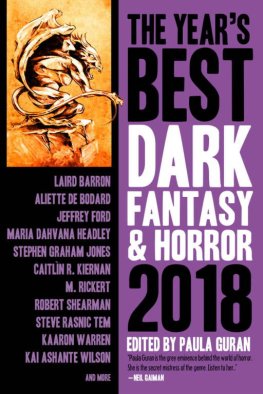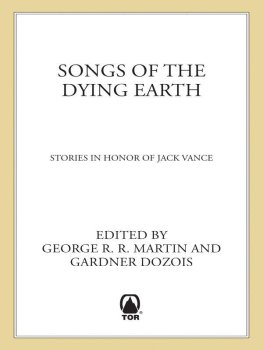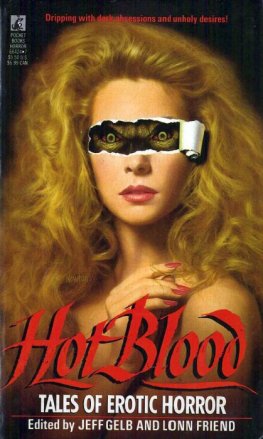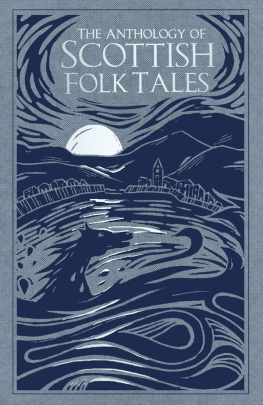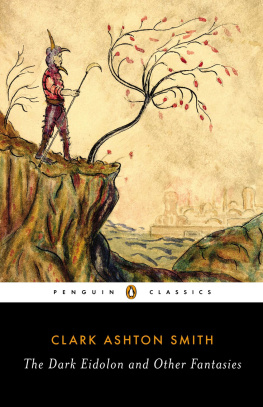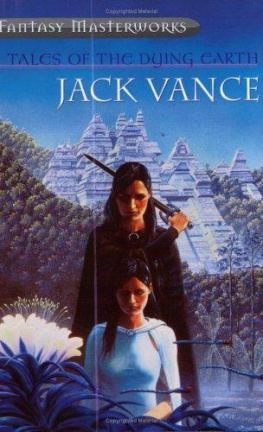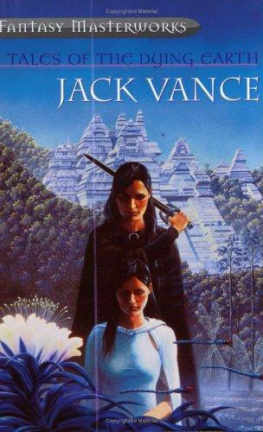John Pelan - The Last Continent: New Tales of Zothique
Here you can read online John Pelan - The Last Continent: New Tales of Zothique full text of the book (entire story) in english for free. Download pdf and epub, get meaning, cover and reviews about this ebook. year: 1999, publisher: Shadowlands Press, genre: History. Description of the work, (preface) as well as reviews are available. Best literature library LitArk.com created for fans of good reading and offers a wide selection of genres:
Romance novel
Science fiction
Adventure
Detective
Science
History
Home and family
Prose
Art
Politics
Computer
Non-fiction
Religion
Business
Children
Humor
Choose a favorite category and find really read worthwhile books. Enjoy immersion in the world of imagination, feel the emotions of the characters or learn something new for yourself, make an fascinating discovery.
- Book:The Last Continent: New Tales of Zothique
- Author:
- Publisher:Shadowlands Press
- Genre:
- Year:1999
- Rating:3 / 5
- Favourites:Add to favourites
- Your mark:
- 60
- 1
- 2
- 3
- 4
- 5
The Last Continent: New Tales of Zothique: summary, description and annotation
We offer to read an annotation, description, summary or preface (depends on what the author of the book "The Last Continent: New Tales of Zothique" wrote himself). If you haven't found the necessary information about the book — write in the comments, we will try to find it.
The Last Continent: New Tales of Zothique — read online for free the complete book (whole text) full work
Below is the text of the book, divided by pages. System saving the place of the last page read, allows you to conveniently read the book "The Last Continent: New Tales of Zothique" online for free, without having to search again every time where you left off. Put a bookmark, and you can go to the page where you finished reading at any time.
Font size:
Interval:
Bookmark:
LIMITED EDITION ISBN 0-9665662-4-6
DELUXE EDITION ISBN 0-9665662-3-8
THE LAST CONTINENT: NEW TALES OF ZOTHIQUE
Copyright 1999 by ShadowLands Press
Dust Jacket Art Copyright 1999 by Rob Alexander
This book is a work of fiction. All names, places and events are imaginary or used fictitiously. Any resemblance to actual people, living or dead, or to actual events or places is entirely coincidental.
All Rights Reserved
Manufactured in the United States of America
FIRST EDITION
Library of Congress Catalog Card Number: 99-63999
ShadowLands Press
a subsidiary of Bereshith Publishing
PO Box 2366 Centreville, VA 20122-2366
v3.1
Grim News From the Far Future Copyright 1999 by Donald Sidney-Fryer
To Wake the Dead in Nypholos Copyright 1999 by Gerard Houarner
The Decibel Circus Copyright 1999 by Rhys Hughes
The Benevolent Emperor Copyright 1999 by Brian McNaughton
Where the Past Lay Buried Copyright 1998 by David B. Silva
Temple of Captured Gods Copyright 1999 by David Niall Wilson
The Connoisseur of Corpses Copyright 1999 by Dan Clore
The Vainglorious Simulacrum of Mungha Sorcyllamia Copyright 1999 by Mark McLaughlin
The Scarlet Succubus Copyright 1999 by Edward Lee & John Pelan
Hode of the High Place Copyright 1984 by Jessica Amanda Salmonson
Serenade at the End of Time Copyright 1999 by Don Webb
Blue Roses, Red, Red Wine Copyright 1999 by t. Winter-Damon
A Traveler in Desert Lands Copyright 1999 by Gene Wolfe
Jolerarymis Rose Copyright 1998 by Geoff Cooper
The Judgement of Tsaran Copyright 1999 by Polagaya Fine
Ashes of Longing, Ashes of Lust Copyright 1999 by Lucy Taylor
Love & Death at the End of Time Copyright 1999 by Mark Chadbourn
The Leper King Copyright 1999 by Charlee Jacob
The Light of Achernar Copyright 1999 by Brian Stableford
The Triumph of the Worm Copyright 1999 by Karl Henrik Johnsson
by Donald Sidney-Fryer
by Gerard Houarner
by Rhys Hughes
by Brian McNaughton
by David B. Silva
by David Niall Wilson
by Dan Clore
by Mark McLaughlin
by Edward Lee & John Pelan
by Jessica Amanda Salmonson
by Don Webb
by t. Winter-Damon
by Gene Wolfe
by Geoff Cooper
by Polagaya Fine
by Lucy Taylor
by Mark Chadbourn
by Charlee Jacob
by Brian Stableford
by Henrik Johnsson
This tome is first and foremost a tribute to Clark Ashton Smith, one of the finest prose stylists this century has ever seen. These tales would not exist without the treasures left to us by the late Bard of Auburn.
The publishers would also like to thank the following for their help in making this book a reality: Russell Horror Collector Mullen for making the initial connection, Ed Kramer for invaluable aid and advice, Joe Fleischmann for pushing us to do it right, Fredrik King, Allen Koszowski and Rob Alexander for their artistic visions, Patricia Macomber for technical advice and design, and Dave Necro Barnett and Fat Cat Design for the fabulous cover layout and design.
Thanks to all of the authors who undertook the task of breathing life into a dying world. The tales you have told are a fitting tribute to an author and a world that will never truly die.
And of course we are indebted to the editor, John Pelan, for his vision, perseverance and dedication to this project. The story of a fated meeting in 1998 has been told elsewhere, and this book is a testament to the hard work and keen knowledge of a wonderful editor. John, Thanks!
It is one of the curious paradoxes in the limitless domains of art that anything can minister to pleasure, including many things that most of us might very well go out of our way to avoid in our immediate lives. It is a further paradox in the specific universe of literature that, in abundantly describing one thing, the writer can most effectively suggest another thing, that other phenomenon or condition being the diametric opposite of the first. Of all the prose fictions by Clark Ashton Smith (1893-1961) that he devoted to celebrating one geographical area more or less, those that he wrote about Zothique as the last continent of Earth are the most numerous. It is obvious that Ashton Smith enjoyed writing about the mainland that will presumably come about only during the final cycle of the planet. At that general time a numerically dwindling and spiritually sick and senescent humankind will somehow still manage to survive before the ultimate fall of Night, when all humans will presumably perish. Smith conceived of Zothique largely as arid and semi-arid but the latter to a much lesser extentvast deserts extending in all directions underneath a blood-red sun during the day, and unbearably brilliant stars during the nightand such a countryside relieved only by the rare or occasional oasis, or yet verdant valley, or irrigated fields. However, it is in those poetic evocations of desert landscapes with their general desiccation and/or desolation that Smith most successfully brings to mind the exact opposite: vividly lush and green fields, groves, and forests that tease and haunt us all the more compellingly because of their express absence. Amid this exhausted and near-lifeless environment Smith characteristically posits a fast-moving narrative that, although colorful and picturesque, almost invariably depicts nothing but death, decay, dissolutionor on the other hand the ironic and empty triumph over death by means of an illicit necromancy, by which people, animals, or entire landscapes are restored to a semblance or mockery of life. Only the archaic magick, or gramarye, resuscitated from the primordial cycles of the first continent inhabited by humans, Hyperborea, displays the greatest animation of vitality. As ever, in the oeuvre of Ashton Smith whether cast in verse or prose, the one supreme antidote to the horror and banality of life is love itself, and the seductive enchantment that derives from it: love that defies death, and sometimes, (albeit but rarely and briefly) triumphs over it.
Unlike the fictional output of his great colleague and correspondent H. P. Lovecraft (1890-1937), Smiths own tales have engendered relatively few sequels or imitations. Just Lovecrafts own stories that collectively make up the Cthulhu Mythos have spawned so much derivative fiction that surely this further development has now come to outnumber the stories that inspired them by quite a significant margin. What is more, we might add, much of this imitative fiction reflects considerable discredit on Lovecrafts original stories. The present volume of new stories by various authors, new stories that utilize the same fictional background or locale as created by Smith for his own tales of Zothique, represents an obviously pioneering development as instigated by editor John Pelan. The point here simply is to present a new collection, to spin some new yarns, but it is not to rewrite Smiths own stories, or to imitate Smiths own proper and personal style of writing, at least not consciously. To imitate his own style, and to do so successfully, would probably prove impossible in any case. Moreover, what would be the point? Young or beginning writers in general should occupy themselves with constructing their own plots or narratives, as well as concocting their own idiosyncratic styles of writing.
However, we live at a time when otherwise perfectly capable people must invent all over again what other creative people before them have originated, and then must claim their new version, or versions, as somehow on par with the original work of art itself. Such a case is exactly analogous to that of the great ballet-master Marius Petipa (1818-1910), who served the Imperial Russian Ballet during an over-all period from the latter half of 1847 until sometime in 1904, first as a dancer and then as a choreographer. During 1904 a new and not at all sympathetic head of the theatre administration in St. Petersburg forcibly retired him, or at least relegated him to the status of inactive service. Just before this de facto retirement as forced upon him, as well as after, Petipa experienced the supreme displeasure of seeing a number of his best major works (usually characterized by highly fantastic plots) deliberately refashioned by other ballet-masters into stylized interpretationsas though ballet were not already quite stylized as a primary condition of its existence! Petipa complained to the head of the theatre administration, Colonel Telyakovsky, but in vain. As Petipa himself expressed it with considerable bitterness and with especial pertinence: As if people had nothing else to focus their attention, he repeated, as if there were no new stories to tell. That is, as if people had nothing else to do, as if they had nothing of their own to relate.
Font size:
Interval:
Bookmark:
Similar books «The Last Continent: New Tales of Zothique»
Look at similar books to The Last Continent: New Tales of Zothique. We have selected literature similar in name and meaning in the hope of providing readers with more options to find new, interesting, not yet read works.
Discussion, reviews of the book The Last Continent: New Tales of Zothique and just readers' own opinions. Leave your comments, write what you think about the work, its meaning or the main characters. Specify what exactly you liked and what you didn't like, and why you think so.


